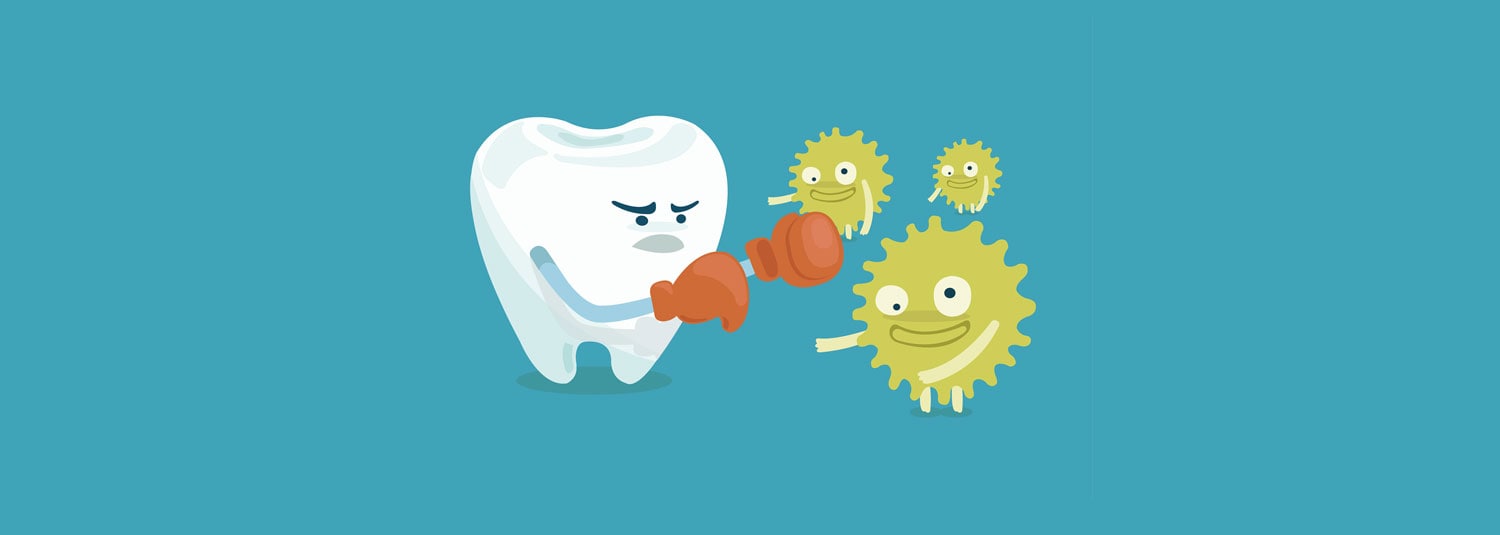What Do I Need to Know About Dental Plaque?

It’s no secret that plaque is not a desirable substance to have on your teeth. What’s less clear to many people, however, is what exactly plaque is and why it’s harmful. Additionally, plaque prevention strategies beyond brushing are not widely known either. In order to achieve your healthiest smile, knowing all of the facts about plaque is a good place to start.
What is plaque and why is it bad for your teeth?
Most everyone can relate to that less-than-pleasant fuzzy feeling on the teeth that occurs when you haven’t brushed. The cause of that feeling is plaque, which is a sticky film of bacteria. The bacteria in plaque produces acid, which destroys the enamel and eventually leads to decay. Plaque doesn’t only develop on the surface of the teeth, however. It can also develop under the gums on the roots of the teeth; this can lead to a weakening of the bones that support the teeth.
What causes plaque?
It’s common knowledge that sugar isn’t healthy for your teeth. However, sugar isn’t the only culprit behind the formation of plaque. Other carb containing foods– like milk, candy, soda, and cake– can also lead to plaque forming on the teeth. The harmful bacteria in the mouth use carbohydrates as fuel to produce acid that causes tooth decay. Thus, it’s particularly bad for your oral health when carbohydrates are frequently consumed and left to sit on the teeth.
How can I prevent the formation of plaque?
- Daily brushing. Brushing is your number one defense against plaque. You should always brush your teeth twice a day, but consider brushing more often if you regularly consume sodas, candy, and other foods and beverages high in sugar and starches.
- Don’t forget to floss. Brushing is important, but it can’t prevent plaque alone. Flossing daily helps to remove food debris and other particles that get trapped between teeth.
- Use a rinse. Add an extra layer of defense against plaque formation by rinsing daily with an antibacterial mouthwash. Be careful what type of rinse you’re using, though; some mouthwashes are simply meant to refresh the breath. Antibacterial mouthwashes, on the other hand, fight against harmful bacteria in the mouth.
- Don’t skip the dentist. Regardless of how diligent you are when it comes to your dental health, visiting your dentist regularly is still an essential part of avoiding the build-up of plaque. Simply put: professional cleanings by a dental hygienist will get your teeth cleaner than you’re able to with at-home brushing and flossing.
- Eat your fruits and veggies. A balanced diet is important to your oral health and your body’s overall health. Crunchy veggies and certain fruits– think apples, cucumbers, and carrots– will help polish your smile.
- Watch your sweets intake. Excessive snacking in general is not a good idea for your oral health. When you snack too often, you give food a chance to sit on your teeth for hours before brushing occurs. If you do snack throughout the day, choose teeth-friendly options like cheese, yogurt, and raw veggies. If you do indulge in your favorite sweets from time to time, follow-up with a good brushing session afterwards.
- Chew (sugar-free) gum. Although it might seem odd, gum can actually be a healthy choice for your teeth– provided it’s sugar-free. That’s because gum can help remove food particles left between meals and get the saliva flowing in your mouth. Of course, if you choose sugar-loaded gum, you’re defeating the purpose of chewing in the first place.
Visiting the dentist regularly is essential to both your oral health and your body’s overall health. Contact us today so that we can help you achieve a healthy, glowing smile.
Return to Blog